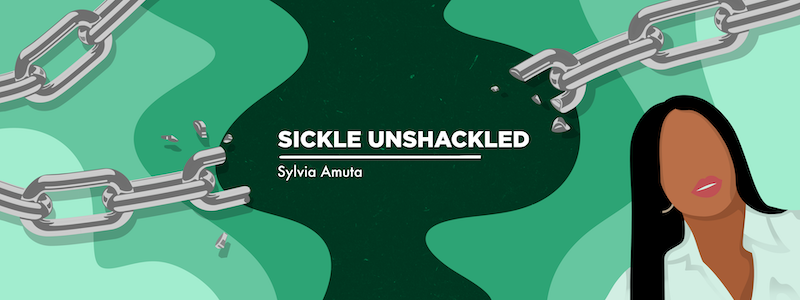Have I taken on more than I can handle by agreeing to be a caregiver?
A vaso-occlusive crisis prompts a doctor to weigh her decision to help her cousin
Written by |

Even though I already had my hands full with two toddlers, I agreed to help take care of my young cousin when my mother suggested it. She’d called to tell me that my aunt Celina, who’d recently lost her first son to sickle cell disease and was still in mourning, was having a hard time coping. Our home country, Nigeria, had experienced recent economic hardship, and she and her husband didn’t have steady jobs or the financial means to raise their other five children.
My once vivacious aunt was described as a mere shell of her former self, battered by the rigors of life. My heart broke for her, and I instantly regretted not keeping in touch with her.
“You know, your aunt Celina was the one who took care of you while you were a little baby and I was working as a public servant,” my mum said, worsening my guilt.
Aunt Celina has never relied on anyone for help. She’s always been self-sufficient and sounded defensive when we asked about her children’s health or how she was doing, as if we were judging her for marrying her husband despite being warned of his sickle cell status. So when she made the effort to call my mom, I knew her troubles were serious.
For some reason, I felt obliged to contact her. The son’s death must have been heartbreaking for their family, as evidenced by the strain and sadness in her voice. I asked about her kids, notably her little girl Ada; she was a flower girl at my wedding and had the same horrific disease that claimed her brother’s life. This led her to talk about Ada possibly spending the holidays with me in Lagos. After consulting with my mother and husband, I agreed to it.
My mother thought it was a terrific idea to have my young cousin stay with us because she could assist me at home with my children while relieving my aunt of the responsibility of caring for a sickly child. My husband’s primary concern was the possibility that I’d be overwhelmed. Nonetheless, I reassured him, saying that taking care of a little girl couldn’t be that difficult.
At first, everything was going well; my children adored Ada, and she was healthy — until one horrific night, the events of which I remember as well as if they’d happened yesterday.
In the dead of night, I heard a shrill scream. As I heard the sound again, this time more like wailing, I bolted upright in bed, wondering if I were still dreaming. I groggily got up to investigate the noise. Ada, it turned out, was clearly suffering from a high temperature and rigors. For a moment, I panicked, forgetting that I was a physician. Ada cried and moaned that she hurt everywhere.
Then, from behind me, my husband said, “What should we do? Think, you’re a doctor.” I immediately came out of my daze and moved into full crisis mode. Ada was admitted to the hospital that night, and I spent a few days with her there. But happily, she was able to overcome the infection and vaso-occlusive crisis.
Honestly, we’d never encountered anything like that at home, so it was truly a frightening event for my family and me. The majority of my work involves dealing with critical and emergency situations, but that still didn’t prepare me for the event that night.
That single occurrence turned everything around for me. It taught me to always be prepared for the worst-case scenario. My husband joked that I went a little crazy, based on the way I frenziedly stocked our medicine cabinet. Even as I reassured him that being well prepared was the best course of action, my true sentiment was, “Are we truly cut out for this? Have we taken on more than we can handle by agreeing to be caregivers?”
While I was contemplating this, he said, “Don’t worry. You can never go wrong by trying to help someone.” And that was all the encouragement I needed to keep fighting for Ada and her battles with sickle cell disease.
Note: Sickle Cell Disease News is strictly a news and information website about the disease. It does not provide medical advice, diagnosis, or treatment. This content is not intended to be a substitute for professional medical advice, diagnosis, or treatment. Always seek the advice of your physician or other qualified health provider with any questions you may have regarding a medical condition. Never disregard professional medical advice or delay in seeking it because of something you have read on this website. The opinions expressed in this column are not those of Sickle Cell Disease News or its parent company, Bionews, and are intended to spark discussion about issues pertaining to sickle cell disease.







Leave a comment
Fill in the required fields to post. Your email address will not be published.